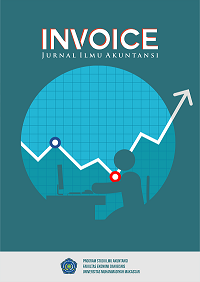System Implementation and Governance in Sharia Financial Institutions
Abstract
Islamic finance institutions (IFIs) are bound by principles that extend beyond profit-making; they must ensure accountability to Allah SWT in their operations. These institutions are required to adhere strictly to Sharia standards, which guide their governance and systems. This study aims to examine the implementation of systems and governance in IFIs in Indonesia. A descriptive qualitative approach, utilizing library research, was employed to explore this subject. The findings reveal that the primary goal of the Islamic financial system is to redistribute wealth, facilitating the transfer of funds from savers to borrowers in need, thereby promoting economic growth and enhancing social welfare. Shariah governance (SG) is a unique framework that ensures compliance with Islamic laws, akin to the historical concept of hisbah. Effective governance is essential for the success of Islamic finance institutions, ensuring that they operate in accordance with Sharia principles. This study underscores the significance of SG in regulating these institutions, highlighting the role of the Sharia Supervisory Board (SSB) in maintaining Sharia compliance. Furthermore, regulatory frameworks in Indonesia, including laws and guidelines from the National Shariah Board (DSN), ensure that IFIs adhere to these standards, thereby reinforcing their commitment to Islamic ethics and promoting trust within the communityReferences
Adiwarman Karim. Islamic Bank Fiqh and Financial Analysis. 3rd ed. Jakarta: PT. King Grafindo Press, 2004.
Ahmad Rodoni & Abdul Hamid. Islamic Financial Institutions. Jakarta: Zikrul Hakim, 2008.
Ahmad Syakhroza. Corporate Governance: History and Development, Theory, Model and System Governance, as well as the Application on BUMN Companies. Jakarta: Publishing Institution, Faculty of Economics, University of Indonesia, 2008.
Ali Rama. (2014). Comparative Analysis of the Sharia Governance Model in Islamic Financial Institutions: A Case Study of ASEAN Countries. Research Report, Research Center for Pens, UIN Syarif Hidayatullah Jakarta.
Ali Rama. (2015). "Analysis of the Sharia Governance System for Islamic Banking in Indonesia and Malaysia." Journal of Islamic Community Guidance, 8(1).
Ali Rama. (2014). Comparative Analysis of the Sharia Governance Model in Islamic Financial Institutions: A Case Study of ASEAN Countries.
Andri Soemitra. Islamic Banks and Financial Institutions. Jakarta: Kencana, 2018.
Badruzaman, D. (2019). "Implementation of Sharia Economic Law in Sharia Financial Institutions." Maro, 2(2).
Budiono, A. (2017). "Implementation of Sharia Principles in Islamic Financial Institutions." Law and Justice, 2(1).
Faranti, E. (2021). "Implementation of the Regulation of the Minister of Law and Human Rights of the Republic of Indonesia No. 17 of 2018 Concerning the Registration of Limited Partnerships, Public Partnerships, and Civil Partnerships in Financial Institutions." Journal of Law (Legal Science), 7(2).
Focus. Sharia Economic Code. Media Focus, Bandung, 2011.
Fure, J. A. (2016). "The Function of Banks as Financial Institutions in Indonesia According to Law No. 10 of 1998 Concerning Banking." Lex Crimen, 5(4).
Ghozali, M. (2018). "Analysis of the Islamic Financial System and Conventional Financial Institutions." IQTISHODUNA: Journal of Islamic Economics and Business, 14(1).
Islamic Financial Services Board (IFSB). Guidance Principles on Sharia Governance Systems for Institutions Offering Islamic Financial Services. Kuala Lumpur, 2009.
Ilham, M., & Hariyani, I. (2020). "Understanding the Role of Islamic Financing Institutions in Increasing MSME Financial Accessibility During the COVID-19 Pandemic." Widya Juridika, 3(2).
Isra. Islamic Financial System: Principles and Operations. Isra Press, Kuala Lumpur, 2010.
Jaya, A. (2022). "Human Development in an Islamic Economic Perspective for Achieving Falah." Dialogika Journal: Management and Administration, 4(1).
Marsuni, N. S. (2024). Pengaruh Islamic Corporate Governance, Islamic Corporate Social Responsibility, dan Islamic Ethical Identity terhadap Kinerja Keuangan dan Nilai Perusahaan (Studi Empiris Bank Umum Syariah di Indonesia). (Doctoral dissertation, Universitas Hasanuddin).
Ministry of Religion of the Republic of Indonesia. Al-Qur'an and Its Translation, 2012.
M. Nur Rianto Al Arif. Islamic Financial Institutions: A Theoretical and Practical Study. Bandung: Pustaka Setia, 2012.
Mohammad Ghozali. (2018). "Analysis of the Islamic Financial System and Conventional Financial Institutions." Jurnal Academia, Iqtishoduna, 14(1).
Mohammed Hudribiq. Ushul Fiqh. Dar al-Fikr, Beirut, 1988.
Marsuni, N. S. (2024). "The Challenges of the Sharia Economy and Businesses in Facing the Coronavirus Endemic and Circular Economy in Indonesia." LAA MAISYIR: Jurnal Ekonomi Islam, 275-291.
Muhammad Syafii Antonio. Bank Syariah: From Theory to Practice. Elex Media Komputindo, Yogyakarta, 2009.
Muthaler, O. (2019). Development History of Sharia Accounting and the Growth of Islamic Banking. Semarang: Graha Ilmu.
Nasyitotul Jannah. (2012). "Critical Study on the Implementation of Murabahah Contracts in Islamic Financial Institutions." FAI Journal-Unmuh Semarang, Semarang.
Rama, A. (2015). "Regulatory Framework Analysis of the Shariah Governance Model in Islamic Financial Institutions in Indonesia." Journal of Islamic Economics Lariba, 1(1).
Soemitra, A. (2017). Banks & Islamic Financial Institutions. Prenada Media.
Downloads
Published
Issue
Section
License
Authors who publish with Invoice: Jurnal Ilmu Akuntansi agree to the following terms:
-
Copyright Ownership
The copyright of all articles published in this journal remains with the author(s). However, the authors grant Invoice: Jurnal Ilmu Akuntansi the right of first publication with the work simultaneously licensed under a Creative Commons Attribution 4.0 International License (CC BY 4.0). This license allows others to share, copy, redistribute, adapt, and build upon the work for any purpose, even commercially, as long as proper credit is given to the original author(s) and the source. -
Licensing and Access
Invoice: Jurnal Ilmu Akuntansi provides immediate open access to its content on the principle that making research freely available to the public supports a greater global exchange of knowledge. All published materials are available freely without subscription or payment and can be accessed, downloaded, and reused by any user provided that appropriate attribution is given. -
Permission for Reuse
For uses not covered by the CC BY 4.0 license, such as commercial reprints, translations, or any form of adaptation without clear attribution, users must obtain written permission from the editorial team. Requests for such permissions can be directed to the editorial office at: [invoice@unismuh.ac.id]. -
Plagiarism and Originality
Authors are responsible for the originality of their submissions. All articles are screened for plagiarism using appropriate tools before acceptance. Manuscripts found to contain unoriginal content or infringing materials will be rejected or retracted as per journal policy.















